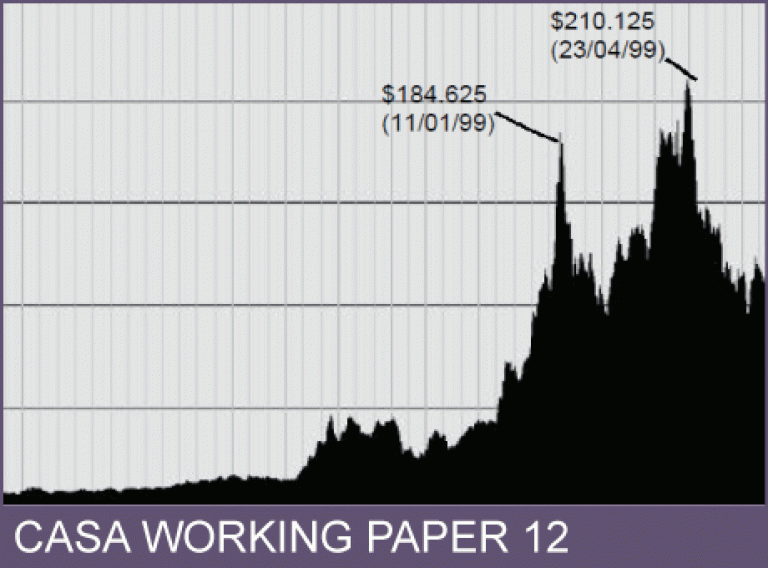CASA Working Paper 12

1 July 1999
Finding the Source of the Amazon.com: Examining the Hype of the "Earth's Biggest Bookstore"
Amazon.com is an archetype of the emerging e-commerce, heralded by many as a paragon of the bright future of the Information Age. But what is the real story behind the hype? How did it come to be, how has it established such a strong brand on the Internet and beyond, how does it operate in practice, how is it trying to build a loyal community, and what might it impacts be on traditional bookshops?
My interest in writing a paper on Amazon.com was sparked at the end of 1998 whilst enjoying a workshop on the changing nature of geographic accessibility in the Information age, where Amazon was often cited as a powerful exemplar in many of our discussions. (Note, this may have been because attendees were literate, well-off academics who like to buy books). I realised I knew little about this company apart from the hype that surrounds it, despite the fact that I first purchased books from them in January 1998. Therefore, I thought it would be a worthwhile exercise to learn more about the company, and try to reveal some of the truth behind the hype.
In this paper I begin by examining the fascinating mythology that surrounds the founding of the company in 1995 and its amazing stock market performance since its become a public company in 1997. I then map out the geography of Amazon.com in terms of both virtual and real properties, focusing on how it is growing and expanding. The paper concludes with a brief discussion of the geography of e-commerce and some of the implications for Amazon.com and retailing.
This working paper is available as a PDF. The file size is 769KB.
Authors: Martin Dodge
Publication Date: 1/7/1999
 Close
Close

